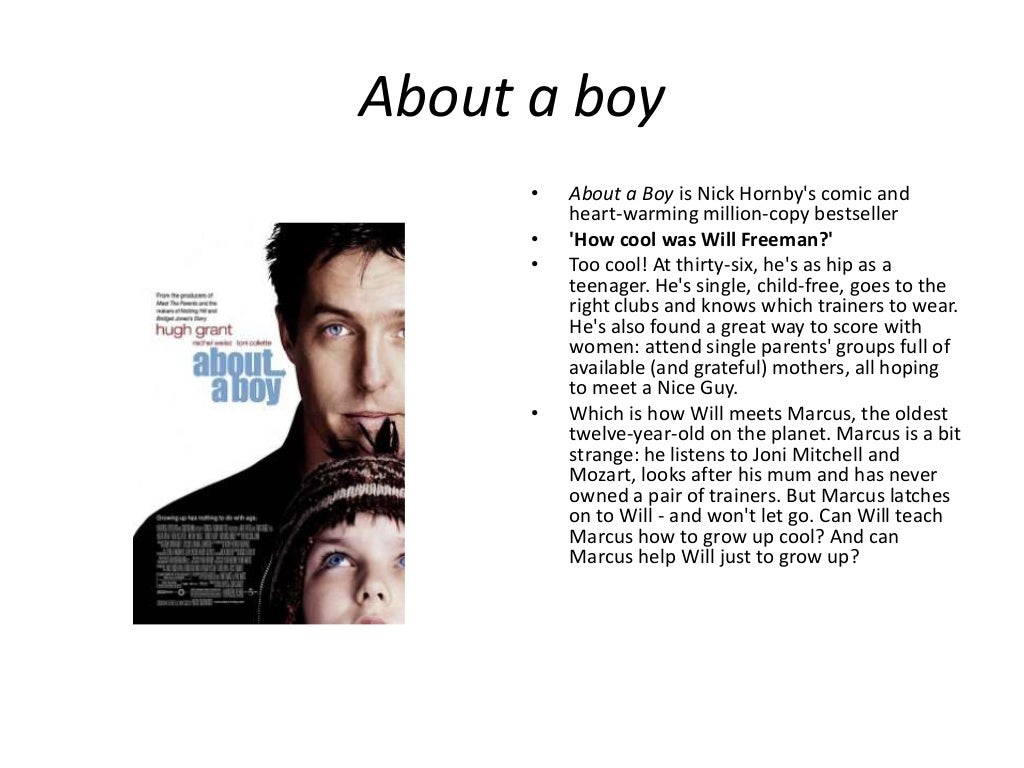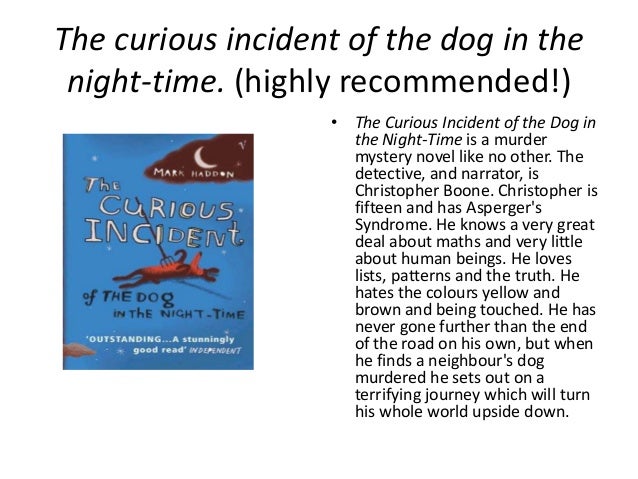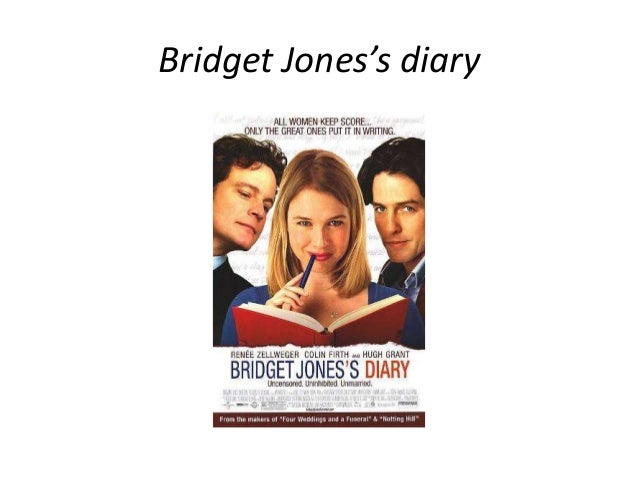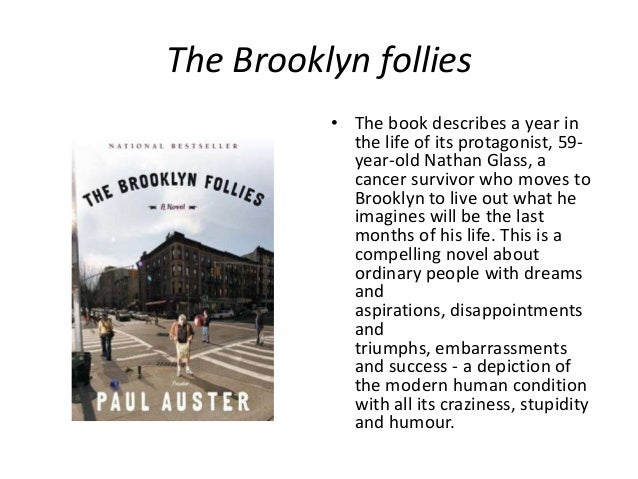Thursday 26 March 2015
WRITING TASK: TIPS FOR A GOOD ESSAY
Hello everyone!
It's time you wrote an essay!
Last day we spoke for a while about how to write a good "For & Against" or "Opinion" essay. This is the powerpoint I showed you:
Here you have a document containing more good samples of essays, and
also "Useful Language" to help you express different ideas when writing (contrast, addition, ...)
Remember I told you to write an essay, either a "for & against" or a "opinion" one, on the following statement "LET THE PUNISHMENT FIT THE CRIME"
See you after Easter,
Ana
Etiquetas:
doc,
powerpoint,
writing help
UNIT 8: LAYING DOWN THE LAW (ANSWERS)
Click here to check the answers to the reading activities on pag.58.
Etiquetas:
answers
Monday 23 March 2015
IT'S A GOOD READ!: MY BOOK RECOMMENDATIONS
This year I would like you to read a book, the one that you like, and prepare either an oral presentation or a written review by the end of the course.
Click here to download a document to help you prepare a good review.
If you have doubts about which book might be a good read, have a look at my recommendations:
"ABOUT A BOY"

"THE CURIOUS INCIDENT OF A DOG IN THE NIGHT TIME"

"BRIGET JONES'S DIARY"

"THE BROOKLYN FOLLIES"

"THE BOY IN THE STRIPED PYJAMAS"

"THE SECRET DIARY OF ADRIAN MOLE"
The misadventures of a nerdish teenage boy as recorded in his personal diary.

"MATILDA"
Story of a wonderful little girl, who happens to be a genius, and her wonderful teacher vs. the worst parents ever and the worst school principal imaginable.

Hope it helps you choose the book you want to read!
Click here to download a document to help you prepare a good review.
If you have doubts about which book might be a good read, have a look at my recommendations:
"ABOUT A BOY"

"THE CURIOUS INCIDENT OF A DOG IN THE NIGHT TIME"

"BRIGET JONES'S DIARY"

"THE BROOKLYN FOLLIES"

"THE BOY IN THE STRIPED PYJAMAS"

"THE SECRET DIARY OF ADRIAN MOLE"
The misadventures of a nerdish teenage boy as recorded in his personal diary.

"MATILDA"
Story of a wonderful little girl, who happens to be a genius, and her wonderful teacher vs. the worst parents ever and the worst school principal imaginable.

Hope it helps you choose the book you want to read!
Etiquetas:
BOOK REVIEW
UNIT 8: PUNISHMENT
Hello everybody,
This is the powerpoint we used in class to talk about "punishment":
What's your opinion about the way criminals are punished under the Spanish law?
Do you feel Spanish law is too soft on crime?
Have a look at this entry from Isabel Bastida's blog, and watch a video in which Tony Blair, ex- UK Prime Misnister, talks about crime in Britain.
This is the powerpoint we used in class to talk about "punishment":
What's your opinion about the way criminals are punished under the Spanish law?
Do you feel Spanish law is too soft on crime?
Have a look at this entry from Isabel Bastida's blog, and watch a video in which Tony Blair, ex- UK Prime Misnister, talks about crime in Britain.
Etiquetas:
powerpoint,
Video-activity
Wednesday 18 March 2015
UNIT 8: "IT WAS A VIRTUAL MURDER BUT THE SENTENCE IS REAL"

Click here to read the whole newstory about that woman who "killed" her virtual ex-husband.
What do you think about "virtual" crimes? Do you consider they are petty crimes or felony? How would you punish these "virtual" offenders?
Etiquetas:
news
UNIT 8: MODALS OF DEDUCTION
"The burglar must have broken into the house through the window"
(you're sure it happened)
"The victims can't have recognised the criminals because they were wearing masks"
(you're sure it didn't happen)
"The criminals might have used some drugs to make them feel dizzy"
(you don't really know if it happened or not)
Click here to complete an online activity.
I also want you to click here to have a look at a document containing a kind of review of the different modal verbs and their uses in English.
Click here and here to complete some online activities, and so revise modal verbs.
See you next Monday again,
Ana
Etiquetas:
powerpoint; grammar; extra-practice
Monday 16 March 2015
UNIT 8: LAW AND ORDER
Have you ever been the victim of a crime?
Have you ever witnessed a crime?
Have you ever been accused of a crime?
Here you have the poweroint we saw in class to introduce some vocabulary about crimes and criminals (with the answers):
Have you ever been the victim of a pickpocket? This is the video we watched about that gang which performs in Barcelona:
To finish, click on the following links to get a bit further!
* Crime, criminals, legal system, related words
* A quiz: test your vocabulary
* At court
Etiquetas:
powerpoint,
video,
Vocabulary
Wednesday 11 March 2015
UNIT 7: NARRATIVE TENSES (answers)
When dealing with "Narrative Tenses", to tell or write an anecdote, I gave you a couple of stories for you to complete at home, and so revise and practice these tenses a bit more:
Click here to check your answers.
Click here to check your answers.
Etiquetas:
answers
UNIT 7: A QUIET REVOLUTION
Today we have watched part of the documentary "A QUITE REVOLUTION", which shows how ordinary people with no education, no money, even no shoes, are able to carry out a revolution which, in the end, has a big impact on local areas.
If you feel like watching the whole documentary, here you have it:
Hope you enjoy it!
If you feel like watching the whole documentary, here you have it:
Hope you enjoy it!
Etiquetas:
video
Monday 9 March 2015
UNIT 7: NATURE (READING PAG.51-158, answers)
Click here to check your answers to the activities on pag. 50
Etiquetas:
answers
UNIT 7: THE ENVIROMENT
"HOW GREEN ARE YOU? Are you a Super-Saver or an Energy-Waster?"
Click here to have a look at a quiz to find out how green consciuos you are . If, after completing the quiz, you discover that you are not that ecologically-conscious, look at this video to help you improve and be "greener":
Here you also have the powerpoint on "Environmental threats" we saw last day in class:
Now try these activities:
Activity 1
Activity 2
To finish, here you have a listening activity:
Click here to have a look at a quiz to find out how green consciuos you are . If, after completing the quiz, you discover that you are not that ecologically-conscious, look at this video to help you improve and be "greener":
Here you also have the powerpoint on "Environmental threats" we saw last day in class:
Now try these activities:
Activity 1
Activity 2
To finish, here you have a listening activity:
- (medium) Save the Earth
Etiquetas:
powerpoint; video; listening practice,
Vocabulary
UNIT 7: REDUCED RELATIVE SENTENCES (PARTICIPLE CLAUSES)
Some relative clauses can be "reduced" to participle clauses:
*A present participle clause (-ing) can repleace:
a) a relative clause in the present or past continuous.
"The woman singing that song is a famous actress" (The woman who is singing ....)
"The car going round the corner was the new BMW" (the car which was going round ...)
b) a relative clause describing a permanent state.
"The people living in that house work in the theatre" (the people who live ..)
"The flat belonging to my brother was the nicest" (the flat which belongs to ...)
* A past participle clause (-ed) can replace a passive relative clause:
"All TVs sold in this shop have a one-year guarantee" (All TVs which are sold ....)
"The video released last week has sold a million" (The video which was released ...)
Now try these online activities:
Activity 1
Activity 2
Hope it helps!
Etiquetas:
grammar; extra-practice
Thursday 5 March 2015
PUNCTUATION TIPS
Look at the answers to the activity I gave you last week to help you with the use of the "comma":
1. When going on a trip, I like taking my guitar with me.
2. I've been to France, Germany, China and Spain.
3. Next week, I am going to have a party, so I invited my friend, Mark and Sue.
4. There are exactly 4,897,341 people living in this city, most of whom take a train, a bas or a tram to work.
5. "Look at this", he whispered.
6. Paulina, his wife for many years, decided to live in Greece.
7. As the plane was coming to a halt on the runaway, I was beginning to feel less nervous.
8. The thief had very impractical shoes, so he couldn't run very fast.
9. "I'm warning you", said the teacher, "don't even try to cheat, or else you will be expelled from school".
10. I dedicate this work to my brothers, Jonh Smith and God.
11. Sarah, the most intelligent pupil in the class, was always late for work.
12. I said that she is intelligent, not pretty.
13. Once the storm was over, we could sail to the island.
14. Given the terrible weather conditions, it is surprising that the holiday was so enjoyable.
15. India, a truly beautiful, interesting and exotic country, is now a popular holiday destination.
16. During lunch, at the campus cafeteria, Henry noticed the dirty tables, the overworked cashiers and the high prices of food.
17. During the race, I tried to keep up with Mark, who can run 100 meters in under 12 seconds.
18. To study for the exam, Bill drank seven cups of coffee, which kept him awake all night.
19. I only earn 2,000 USD a month for my hard work, and my wife gets 12,000, which is unfair.
20. Ron, who is 15, was doing his best to win the contest, but he failed.
1. When going on a trip, I like taking my guitar with me.
2. I've been to France, Germany, China and Spain.
3. Next week, I am going to have a party, so I invited my friend, Mark and Sue.
4. There are exactly 4,897,341 people living in this city, most of whom take a train, a bas or a tram to work.
5. "Look at this", he whispered.
6. Paulina, his wife for many years, decided to live in Greece.
7. As the plane was coming to a halt on the runaway, I was beginning to feel less nervous.
8. The thief had very impractical shoes, so he couldn't run very fast.
9. "I'm warning you", said the teacher, "don't even try to cheat, or else you will be expelled from school".
10. I dedicate this work to my brothers, Jonh Smith and God.
11. Sarah, the most intelligent pupil in the class, was always late for work.
12. I said that she is intelligent, not pretty.
13. Once the storm was over, we could sail to the island.
14. Given the terrible weather conditions, it is surprising that the holiday was so enjoyable.
15. India, a truly beautiful, interesting and exotic country, is now a popular holiday destination.
16. During lunch, at the campus cafeteria, Henry noticed the dirty tables, the overworked cashiers and the high prices of food.
17. During the race, I tried to keep up with Mark, who can run 100 meters in under 12 seconds.
18. To study for the exam, Bill drank seven cups of coffee, which kept him awake all night.
19. I only earn 2,000 USD a month for my hard work, and my wife gets 12,000, which is unfair.
20. Ron, who is 15, was doing his best to win the contest, but he failed.
Etiquetas:
answers,
punctuation,
writing help
WRITING TASK: ANECDOTES
Last day we learned how to tell an anecdote. This is the powerpoint Kerrin used in class (Thank you, Isabel):
Remember I told you to write an anecdote, and to help you with that writing task I showed you this document.
To finish, read the following anecdote:
"Here is a good story to show why you shouldn't leave things to the last minute!.
I'll never forget the day I had to hand my first essay in to literature teacher- what a nightmare!. "I want the 350- word essay on my desk by 10:30" he ordered at 7.30 in the morning. "Oh my God!", I thought, I couldn't believe my ears. I was supposed to write an essay, as long as the Quijite in just 3 hours! I felt like bursting into tears, but instead, I sat in front of my laptop determined to do it.
It was 10 o'clock, and I had just finished and was about to save it when, all of a sudden, the lights went off. I was absolutely livid and just wanted to run away from it all. Obviously, I didn't have time to prepare another essay, so I googled and just copied a report I found on the net. What a big mistake! Unfortunately, that essay had been written by my teacher himself!.
I still feel embarrassed every time I remember that awful event."
Hope it helps!
Remember I told you to write an anecdote, and to help you with that writing task I showed you this document.
To finish, read the following anecdote:
"Here is a good story to show why you shouldn't leave things to the last minute!.
I'll never forget the day I had to hand my first essay in to literature teacher- what a nightmare!. "I want the 350- word essay on my desk by 10:30" he ordered at 7.30 in the morning. "Oh my God!", I thought, I couldn't believe my ears. I was supposed to write an essay, as long as the Quijite in just 3 hours! I felt like bursting into tears, but instead, I sat in front of my laptop determined to do it.
It was 10 o'clock, and I had just finished and was about to save it when, all of a sudden, the lights went off. I was absolutely livid and just wanted to run away from it all. Obviously, I didn't have time to prepare another essay, so I googled and just copied a report I found on the net. What a big mistake! Unfortunately, that essay had been written by my teacher himself!.
I still feel embarrassed every time I remember that awful event."
Hope it helps!
Etiquetas:
writing help,
writing task
VOCABULARY: describing disasters (answers) & KEY WORDS FOR WRITING: like and unlike (answers)
Click here to check the "vocabulary" activity on pag. 126
Click here to check "Key words for writing" on pag. 127
Click here to check "Key words for writing" on pag. 127
Etiquetas:
answers
Monday 2 March 2015
UNIT 7: "TELL A STORY FROM TWO DIFFERENT POINTS OF VIEW"
USEFUL LANGUAGE
Telling a story:
"I was just having a shower when ...."
"All of a sudden/ Suddenly/ At that moment ...."
"I saw/heard that man shouting"
"In the end/ Eventually ...."
Comparing two stories:
"The man said it was midnight, whereas the woman insisted it was at one o'clock"
"According to the man, it was dark, so he couldn't see a thing"
"The old lady was absolutely certain it was a clear night"
Now, click here and here to listen again to these two people involved, somewhat, in the incident. Try to find the differences between their two stories.
Click here to check the script.
After listening to their two versions, who do you believe? Why?
Etiquetas:
listening,
useful phrases
UNIT 7: NARRATIVE TENSES
Hello everyone!
Here you have the power point on narrative tenses and time conjunctios:
If you feel like practising narrtive tenses a bit more, click on the links below:
Here you have the power point on narrative tenses and time conjunctios:
If you feel like practising narrtive tenses a bit more, click on the links below:
- PAST SIMPLE
- PAST CONTINUOUS
- PAST SIMPLE OR CONTINUOUS?
- PAST PERFECT SIMPLE
- PAST PERFECT CONTINUOUS
- PAST PERFECT SIMPLE OR CONTINUOUS?
- PAST SIMPLE OR PAST PERFECT?
Do you still need more practice? Click here, here and here and complete the activities
proposed.
Click here to check your answers
See you on Wednesday.
proposed.
Click here to check your answers
See you on Wednesday.
Etiquetas:
GRAMMAR,
video-activity;extra-material
UNIT 7: EXTREME WEATHER AND NATURAL DISASTERS
Click on the "National Geographic" web to see pictures, read texts and listen to some pieces of news about "extreme weather and natural disasters"
You may also click here to complete some online activities to revise the vocabulary learnt about that topic.
Here you also have a powerpoint showing different natural disasters:
And to finish, a video dealing with the "Top ten infamous natural disasters in the last 100 years"
Etiquetas:
powerpoint,
video,
Vocabulary
Subscribe to:
Posts (Atom)